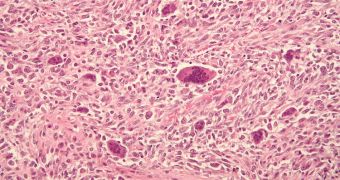A group of investigators in the United Kingdom have just been awarded a research grant for studying a new approach to addressing bone cancer in both children and adults.
The researchers, who are based at the University of Nottingham, could develop a way for patients to enjoy a better quality of life, and to receive a new and advanced type of treatment.
As the Bone Cancer Research Trust launched Bone Cancer Awareness Week today, October 12, it also awarded the new research grant to the UN team.
The purpose of the work is to determine whether bacteria can be recruited as a potential treatment against bone cancer. The friendly microorganisms would kill tumors, but leave healthy tissue alone.
Investigators decided to use Salmonella typhimurium for this work. They want to learn whether modifying this type of harmless bacteria could result in the creation of molecules lethal for osteosarcoma.
This is a primary bone cancer, which is aggressive and also unfortunately very common in both children and adults. Finding a new way to treat it could benefit numerous patients.
The study is being led by experts at the University of Nottingham School of Clinical Sciences (SCS) Division of Pre-Clinical Oncology, AlphaGalileo reports.
Scientists with the group say that previous studies have demonstrate that S. typhimurium has a preference for localizing itself in tumor tissue once inserted in the body.
Exposing people to the microorganism elicits no side-effects. The group is still investigating why the bacteria prefers affected cells rather than healthy ones.
“Developing a treatment that effectively targets cancer cells, but doesn’t damage healthy cells is the Holy Grail for bone cancer treatment,” explains Dr Teresa Coughlan, the leader of the study.
“We are excited by this project as potentially it could result in a new treatment for osteosarcoma, which typically has a poor prognosis,” she goes on to say.
More than 2,000 children and adolescents are diagnosed with primary bone cancer in the United Kingdom annually, and the numbers for the rest of the world are even larger.

 14 DAY TRIAL //
14 DAY TRIAL //